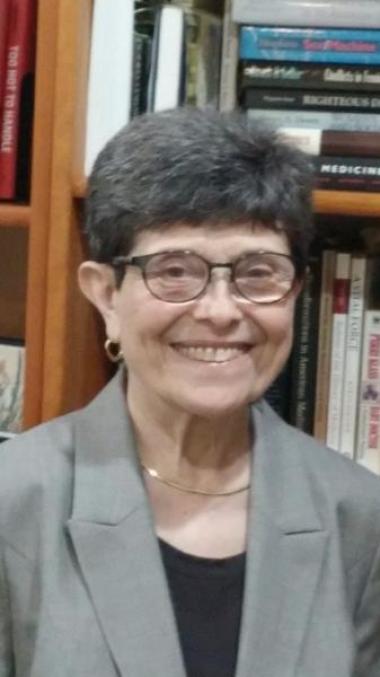
And in 2004 I became a visiting professor at UMass Medical School in the psychiatry department. And that was because they had at the time, I’m not sure if they still do, a division which was extremely interested in medical ethics and one of the things I had done at the Institute for Medical Humanities was to teach medical humanities and medical ethics as well as history of medicine so it was a very good fit. And I was there as a visiting professor for a year and a half. I learned that although they didn’t have the medical history or medical humanities department, they had an expressed need to do two things. To create an archives; they didn’t have one. And this medical school started, well they opened in 1970. This was 2006, and they did not have an archive. And one reason they became aware of the need for an archives was that the first generation of founders were all retired, some had died. People were leaving, taking their papers with them, and the chancellor at that time, Aaron Lazar, he wanted a history of the school. So, they wanted someone to start to build an archives. They also wanted someone to write a history of the school. You can’t really do that without having an archives because what records will you use? I negotiated with the head of the library and of the school and they created a position as head of the office of medical history and archives and in 2006 I started officially, and my faculty appointment simultaneously was professor in the department of psychiatry and I spent the next ten years launching an archives and writing a history of the medical school.
Dr. Ellen Singer More was born in Manhattan, New York, in 1946 and earned her advanced and medical degrees from University of Rochester, NY. She is Professor Emeritus and Founder and Head of the Office of Medical History and Archives of the University of Massachusetts Medical School. In 2003 she received the Margaret W. Rossiter History of Women in Science Prize from the History of Science Society for Restoring the Balance: Women Physicians and the Profession of Medicine, 1850-1995. She also co-edited Women Physicians and the Culture of Medicine. In this interview, Ellen discusses her major research and teaching interests that include the history of American medicine and health care with an emphasis on the history of women in medicine as well as the balancing required to be involved in family, work, and community simultaneously. She also described the solutions she has used to navigate life. She believes there is no one formula to solving problems, but encourages seeking unique solutions. In her concluding remarks, Ellen addresses the importance of diversity in education and the importance of acknowledging sexual assault and harassment as factors that keep women from moving forward in their aspirations in life.
